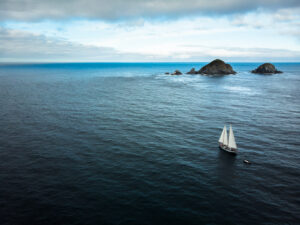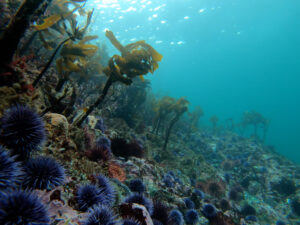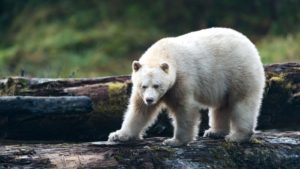Humpback Whales

Well, we sure had a whale of a summer in British Columbia this year. Make that a humpback whale of a summer!
It seemed like barely a week could pass without humpbacks splashing onto television news and the pages of local newspapers.
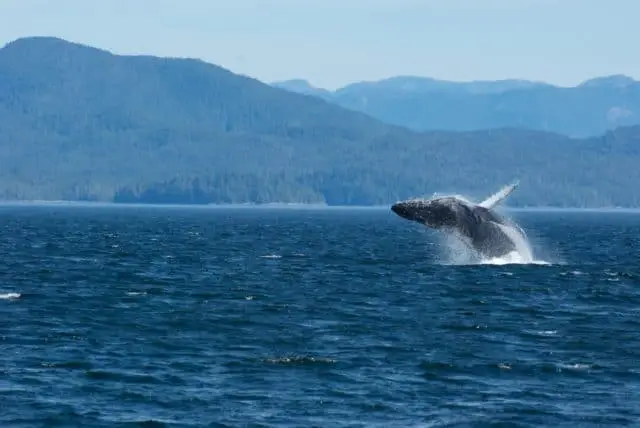
Large groups were congregating off Victoria, others were making rare visits to busy Vancouver. There were humpbacks bumping into kayaks and nearly breaching onto fishing vessels. Humpbacks were even seen battling a pod of orcas to save the life of a sea lion.
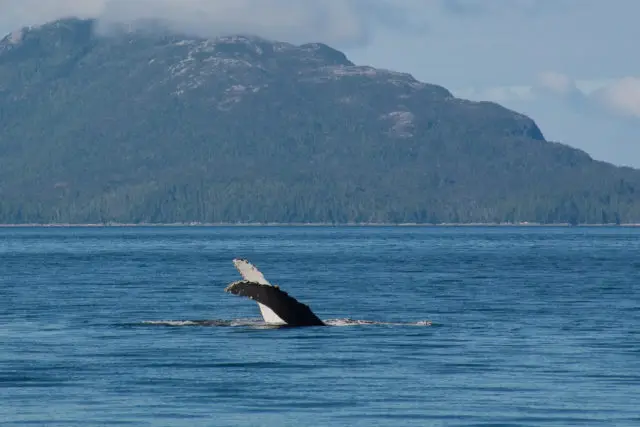
Humpbacks are one of BC’s largest whales. They grow up to 16 metres (52 feet) in length and can weigh as much as 40 tonnes. But despite their massive size, they haven’t always been easy to find around here.
When commercial whaling stopped in the mid-1960s, there were likely fewer than 1,500 humpbacks left in the entire North Pacific. During the following decades, humpback sightings in BC were relatively rare.
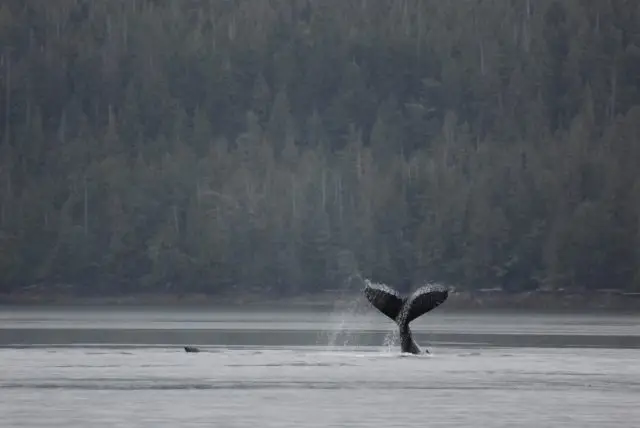
But then the population began to rebound and sightings became more frequent. Researchers now estimate that the waters of the North Pacific may now be home to more than 20,000 individuals. In fact, humpbacks are the whales most commonly seen on Outer Shores’ expeditions.
According to Jackie Hildering, a humpback whale researcher and the Education and Communications Director for BC’s Marine Education and Research Society (MERS), this remarkable rebound can’t just be explained by the cessation of commercial whaling.
“It has to be other factors,” she says. “If the ecosystem couldn’t sustain them, they wouldn’t have made the comeback they have.”
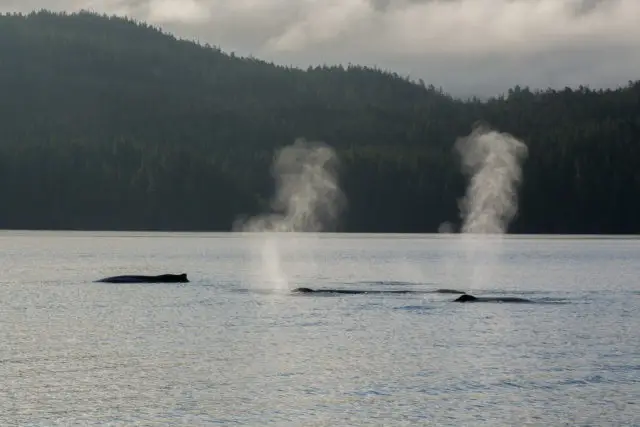
This population rebound also means that humpbacks and humans are interacting more often. This can be a difficult relationship to negotiate, and that’s something MERS is actively trying to help through boater education.
“It has changed the reality of being a boater on the coast,” says Jackie, who, as part of her job, helps maintain an ID book for individual humpback whales. “Vessel strikes pose a danger to both whales and people. And our research shows that 47% of the humpbacks have been entangled at some point in their lives and survived.”
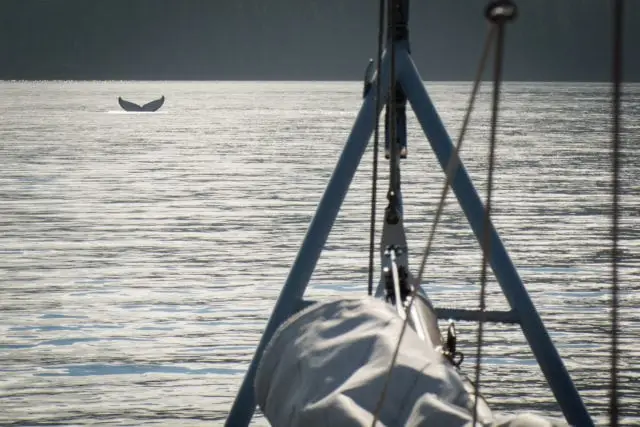
So while more humpbacks in BC is definitely a good news story, it does mean that when it comes to environmental stewardship, we have a few more responsibilities.
“We’re so lucky to have a second chance with these winged giants,” says Jackie. “But it does mean there needs to be more awareness about how humpbacks behave, where they are and what that means for avoiding vessel strikes and managing entanglements.”
Hopefully, with a little luck and a lot of effort, we can look forward to having a whale of a summer every year.

